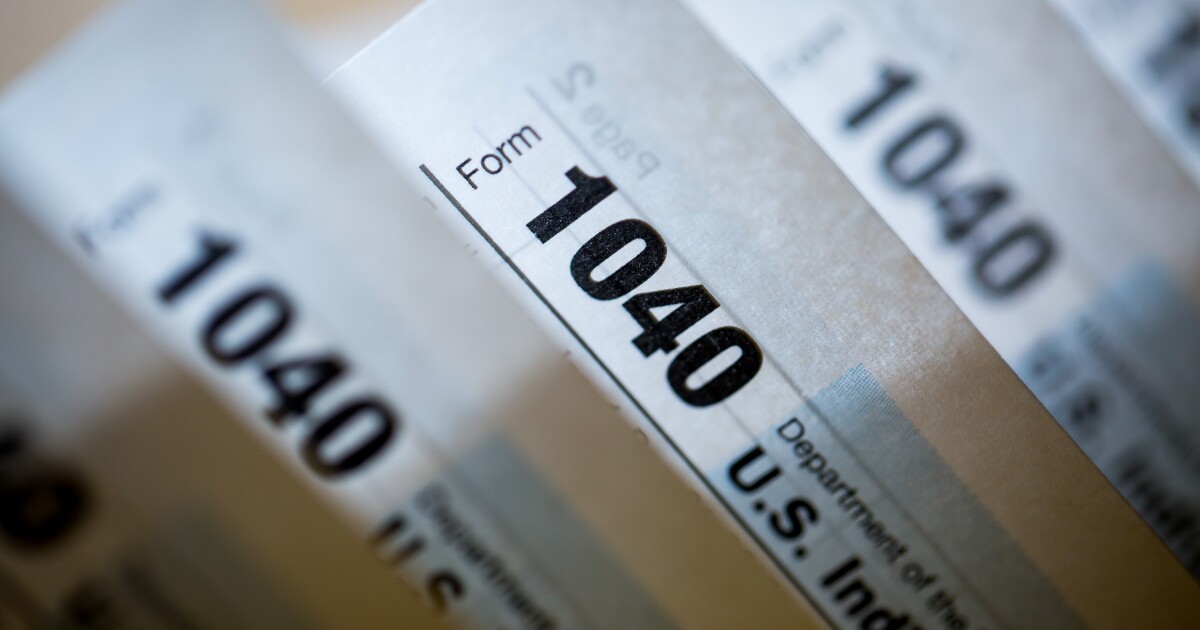Captive audience; some disagreement; game of 21; and other highlights of recent tax cases.
Barrington, Illinois: Tax preparer Gary Sandiego has been sentenced to 16 months in prison for preparing and filing false returns for clients.
He owned and operated the tax prep business G. Sandiego and Associates and for 2014 through 2017 prepared and filed false income tax returns for clients. Instead of relying on information provided by the clients, Sandiego either inflated or entirely fabricated expenses to falsely claim residential energy credits and employment-related expense deductions.
Sandiego, who previously pleaded guilty, caused a tax loss to the IRS of some $4,586,154.
He was also ordered to serve a year of supervised release and pay $2,910,442 in restitution to the IRS.
Ft. Worth, Texas: A federal district court has entered permanent injunctions against CPA Charles Dombek and The Optimal Financial Group LLC, barring them from promoting any tax plan that involves creating or using sham management companies, deducting personal non-deductible expenses as business expenses or assisting in the creation of “captive” insurance companies.
The injunctions also prohibit Dombek from preparing any federal returns for anyone other than himself and Optimal from preparing certain federal returns reflecting such tax plans. Dombek and Optimal consented to entry of the injunctions.
According to the complaint, Dombek is a licensed CPA and served as Optimal’s manager and president. Allegedly, Dombek and Optimal promoted a scheme throughout the U.S. to illegally reduce clients’ income tax liabilities by using sham management companies to improperly shift income to be taxed at lower tax rates, improperly defer taxable income or improperly claim personal expenses as business deductions. As alleged by the government, Dombek also promoted himself as the “premier dental CPA” in America.
The complaint further alleges that in promoting the schemes, Dombek and Optimal made false statements about the tax benefits of the scheme that they knew or had reason to know were false, then prepared and signed clients’ returns reflecting the sham transactions, expenses and deductions.
The government contended that the total harm to the Treasury could be $10 million or more.
Kansas City, Missouri: Former IRS employee Sandra D. Mondaine, of Grandview, Missouri, has pleaded guilty to preparing returns that illegally claimed more than $200,000 in refunds for clients.
Mondaine previously worked for the IRS as a contact representative before retiring. She admitted that she prepared federal income tax returns for clients that contained false and fraudulent claims; the indictment charged her with helping at least 11 individuals file at least 39 false and fraudulent income tax returns for 2019 through 2021. Mondaine was able to manufacture substantial refunds for her clients that they would not have been entitled to if the returns had been accurately prepared. She charged clients either a fixed dollar amount or a percentage of the refund or both.
The tax loss associated with those false returns is some $237,329, though the parties disagree on the total.
Mondaine must pay restitution to the IRS and consents to a permanent injunction in a separate civil action, under which she will be permanently enjoined from preparing, assisting in, directing or supervising the preparation or filing of federal returns for any person or entity other than herself. She is also subject to up to three years in prison.
Los Angeles: Long-time lawyer Milton C. Grimes has pleaded guilty to evading more than $4 million in federal taxes over 21 years.
Grimes pleaded guilty to one count of tax evasion relating to his 2014 taxes, admitting that he failed to pay $1,690,922 to the IRS. He did not pay federal income taxes for 23 years — 2002 through 2005, 2007, 2009 through 2011, and 2014 through 2023 — a total of $4,071,215 owed to the IRS. Grimes also admitted he did not file a 2013 federal return.
From at least September 2011, the IRS issued more than 30 levies on his personal bank accounts. From at least May 2014 to April 2020, Grimes evaded payment of the outstanding income tax by not depositing income he earned from his clients into those accounts. Instead, he bought some 238 cashier’s checks totaling $16 million to keep the money out of the reach of the IRS, withdrawing cash from his client trust account, his interest on lawyers’ trust accounts and his law firm’s bank account.
Sentencing is Feb. 11. Grimes faces up to five years in federal prison, though prosecutors have agreed to seek no more than 22 months.
Sacramento, California: Residents Dominic Davis and Sharitia Wright have pleaded guilty to conspiracy to file false claims with the IRS.
Between March 2019 and April 2022, they caused at least nine fraudulent income tax returns to be filed with the IRS claiming more than $2 million in refunds. The returns were filed in the names of Davis, Wright and family members and listed wages that the taxpayers had not earned and often listed the taxpayers’ employer as one of the various LLCs created by Davis, Wright and their family members. Many of the returns also falsely claimed charitable contributions.
Davis prepared and filed the false returns; Wright provided him information and contacted the IRS to check on the status of the refunds claimed.
Davis and Wright agreed to pay restitution. Sentencing is Feb. 3, when each faces up to 10 years in prison and a $250,000 fine.
St. Louis: Tax attorneys Michael Elliott Kohn and Catherine Elizabeth Chollet and insurance agent David Shane Simmons have been sentenced to prison for conspiring to defraud the U.S. and helping clients file false returns based on their promotion and operation of a fraudulent tax shelter.
Kohn was sentenced to seven years in prison and Chollet to four years. Simmons was sentenced to five years in prison.
From 2011 to November 2022, Kohn and Chollet, both of St. Louis, and Simmons, who is based out of Jefferson, North Carolina, promoted, marketed and sold to clients the Gain Elimination Plan, a fraudulent tax scheme. They designed the plan to conceal clients’ income from the IRS by inflating business expenses through fictitious royalties and management fees. These fictitious fees were paid, on paper, to a limited partnership largely owned by a charity. Kohn and Chollet fabricated the fees.
Kohn and Chollet advised clients that the plan’s limited partnership was required to obtain insurance on the life of the clients to cover the income allocated to the charitable organization. The death benefit was directly tied to the anticipated profitability of the clients’ businesses and how much of the clients’ taxable income was intended to be sheltered.
Simmons earned more than $2.3 million in commissions for selling the insurance policies, splitting the commissions with Kohn and Chollet. Kohn and Chollet received more than $1 million from Simmons.
Simmons also filed false personal returns that underreported his business income and inflated his business expenses, resulting in a tax loss of more than $480,000.
In total, the defendants caused a tax loss to the IRS of more than $22 million.
Each was also ordered to serve three years’ supervised release and to pay $22,515,615 in restitution to the United States.


 Accounting1 week ago
Accounting1 week ago
 Finance1 week ago
Finance1 week ago
 Economics6 days ago
Economics6 days ago
 Finance1 week ago
Finance1 week ago
 Economics1 week ago
Economics1 week ago
 Economics1 week ago
Economics1 week ago
 Personal Finance5 days ago
Personal Finance5 days ago
 Economics6 days ago
Economics6 days ago











